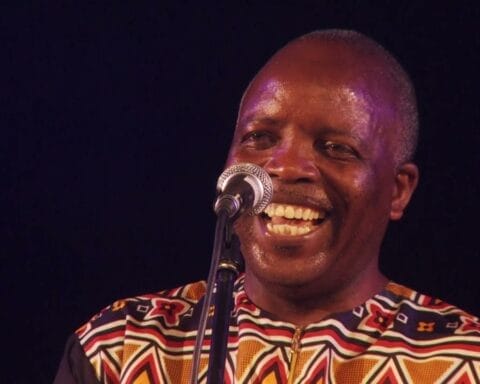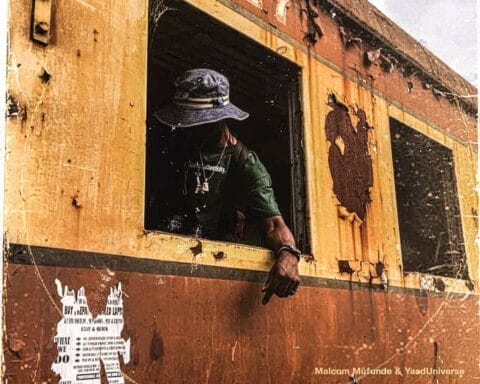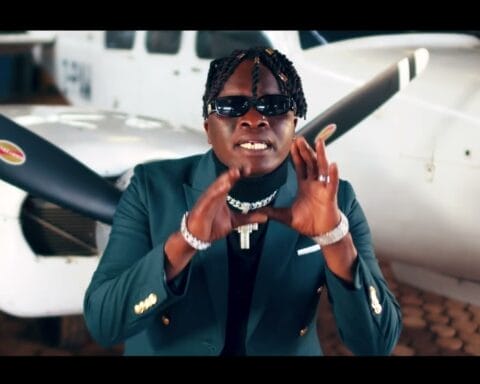The Bhundu Boys’ live performance at the Mean Fiddler in Harlesden, London was an unforgettable experience for concertgoers. Combining traditional Zimbabwean music and modern pop, the band captivated the audience with their upbeat sound and energetic stage presence. The set opened with a captivating rendition of their signature track “Rudo Nerunyararo,” as the crowd let loose and danced to every bite of the music. By the time they performed their biggest hit, “Wamatombo,” fans were euphoric, singing along to every word. This sold-out show truly showcased why the Bhundu Boys have become one of Africa’s most beloved bands and will remain a memorable night by all accounts.
About The Bhundu Boys
The Bhundu Boys were a musical phenomenon. They managed to gain commercial success on an unprecedented scale for emerging from Zimbabwe, their frenetic and electric style of ‘jit’ challenging popular conceptions of African music during the mid-’80s. Exemplifying a bold mix of melodic, harmonic and rhythmic influences from all other continents, they created an accessible yet alien sound that was attractive and captivating to audiences all around the world. Truly, the Bhundu Boys remain one of world music’s greatest acts in history.
The Original Line Up
The Bhundu Boys formed in Harare, Zimbabwe in 1980 when lead guitarist Rise Kagona assembled the original lineup comprised of singer/guitarist Biggie Tembo, bassist David Mankaba, keyboardist Shakie Kangwena, and drummer Kenny Chitsvatsva. With makeshift instruments, the group performed popular Western covers in beer halls throughout their home township and quickly gained recognition from locals. It was then that Steve Roskilly – an ex-property developer – noticed their talent and recorded their first songs at his in-home studio called “Shed”. Their debut single, “Hatisitose” became a local hit for three months straight and their outstanding career was on the incline: soaring further with three subsequent number ones: “Baba Munini Francis”, “Wenhamo Haaneti”, and “Ndimboze.”
The Rise and Fall Of The Bhundu Boys
The journey of the Bhundu Boys to international fame began in the most unlikely way – a couple of British entrepreneurs travelling to Harare hoping to discover artists they could sign and promote. Many would assume this was a long shot. Still, luckily for the Boys, Owen Elias and Doug Veitch found an enthusiastic supporter in Roskilly, and through him managed to get a deal with Discafrique, as well as touring plans that wouldn’t have materialised without them. These ambitious businessmen may have hoped it’d lead somewhere big – but even they probably couldn’t predict how big it’d be: with unlikely heroes in John Peel and Andy Kershaw, both BBC Radio One DJs who were so taken by their music that one even attended Tembo’s wedding as best man!
After signing a landmark deal with WEA, the rumours of their success escalated and they were asked to open up for none other than Madonna at Wembley Stadium. Unfortunately, their major-label debut album True Jit veered off course and sacrificed their signature style for a sound more appealing to Western audiences. With Pamberi not faring any better, it wasn’t long before WEA terminated the contract, signalling an abrupt ending to this whirlwind of fame.
A Tragic End
The Bhundu Boys seemed to have almost suffered a fate worse than death when Tembo unexpectedly parted ways with the group in late 1989. Unperturbed by the absence of their frontman, the band continued to go from strength to strength, hosting benefit concerts in aid of people suffering from AIDS – a disease which unsurprisingly claimed several members’ lives ultimately. Mankaba in 1991, bassist/vocalist Sheperd Munyama in 1992, and Kangwena in 1993.
On July 29, 1995, tragedy struck when Tembo, was found hanged in a psychiatric hospital in Harare. Undeterred by their loss, Kagona, the remaining leader of the band, gathered a new lineup and released 1997’s critically acclaimed album Muchiyedza to pay homage to his dear friend. Unfortunately, it wasn’t quite enough to help The Bhundu Boys remain successful and afterwards, Kagona struggled to catch another break. While these stories may be tragic, they certainly give us an insight into the highs and lows of life on the music industry carpet ride.







